Best Sleep Aid Pills: Effective Doses for a Full Night’s Rest
| Rank | Product | Overview |
| #1 | Advil PM Pain Reliever/Nighttime Sleep Aid
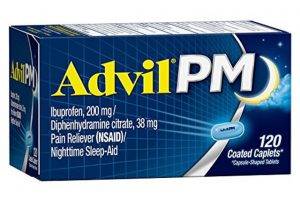 |
|
| #2 | Ambien CR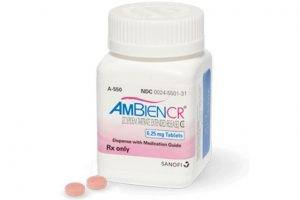
|
|
| #3 | Unisom SleepTabs, Non-Habit Forming Sleep Aid
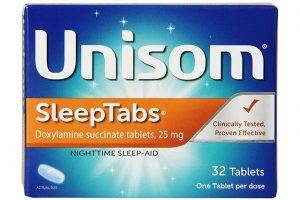 |
|
| #4 | Lunestar

|
|
| #5 | LUNA Naturally Sourced Sleeping Pills for Adults
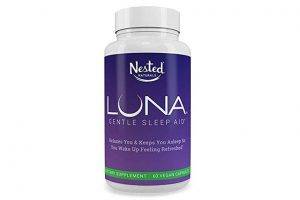 |
|
An uninterrupted, full night’s rest is crucial to your overall health. When you struggle to sleep due to stress, injury, or changes in your sleep schedule, it doesn’t take long to begin to feel the effects. Many times a sleep aid can provide the support you need to help reset your schedule and allow you to start getting the zzz’s you need.
Sleep aids can come in many forms, but pills are designed to more slowly release the ingredients that help you sleep. This allows you to fall asleep more gently, and stay asleep through the whole night. The best sleep aid pills will be those that are made with the ingredients that work best for your symptoms, and the selection we’ve provided below allow you to have an idea of what is available for your use.
It’s important to note that even over the counter sleep options should be discussed with your doctor, especially if you are taking any medications. Introducing new medications to your routine should be done with the knowledge of their ingredients, their use, and their possible side effects.

Table Of Contents
- Why Do I Struggle to Sleep?
- Sleep Aid Pill Options to Consider
- Sleep Aid Ingredients and Possible Side Effects
- • OTC
- • Prescription
- What to Consider When Choosing a Sleep Aid Pill
- The Best Sleep Aid Pill Choices to Consider
- 1. Editor’s Choice: Advil PM Pain Reliever/Nighttime Sleep Aid
- 2. Runner Up: Ambien CR
- 3. Unisom SleepTabs, Non-Habit Forming Sleep Aid
- #4. Lunesta
- #5. LUNA Naturally Sourced Sleeping Pills for Adults
- Conclusion
Why Do I Struggle to Sleep?
With 1 in 3 adults struggling to get enough sleep each night, and 164 million Americans reporting problems with falling asleep or staying asleep, it is no wonder that sleep aids are part of a booming industry. Sometimes the solution to your sleep problems are as simple as purchasing a new mattress or new pillows for better spinal alignment and comfort.
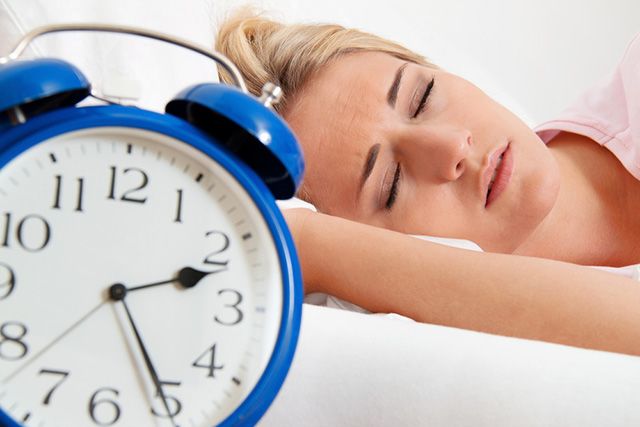
Changes in diet and an awareness of your daily routine can also be helpful. But when even these do not work, you may need to consider something to help ease you into sleep each night to help reset your sleep schedule, and let you get the rest you deserve. Some of the problems people struggle with are outside their control and disrupt their sleep on a consistent basis. The following describes some of the issues that may arise to create short term or even chronic sleep disruptions.
-
Insomnia
Insomnia is a common problem that is defined by many different circumstances. It term itself expresses an inability to fall asleep, or the inability to sleep for more than a few hours at a time. It can be caused by diet, injury, physical and mental stress, mental disorders, medications, and clinical depression to name a few.
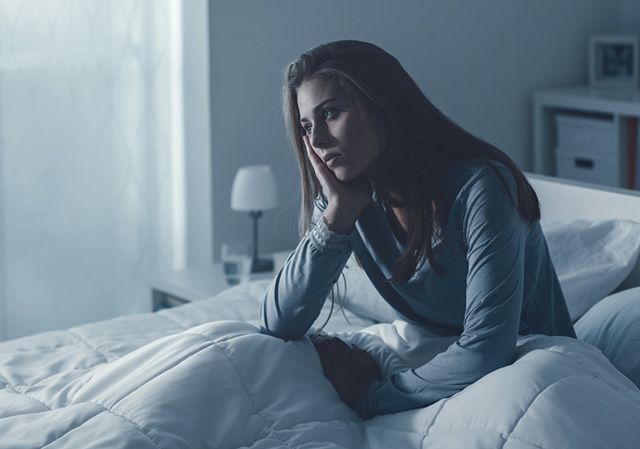
-
Circadian Rhythm Disorders
A circadian rhythm is what allows both our brain and body recognize our natural sleep and waking schedule. It mostly revolves around daylight and helps trigger your sleep as the sun sets. Those who travel on a regular basis across time zones, work a changing shift schedule, or are not naturally in tune with this rhythm due to artificial lighting may develop a disorder. This is when the body is unable to recognize what time it is and can leave you feeling disoriented and tired through the day.

- Chronic Pain and/or Injury
Even when chronic pain and injury recovery is monitored by a doctor, it can be difficult to find comfort each night, especially as painkillers begin to wear off. Injury recovery is also often marked by the inability to physically turn into a more natural sleep position. Responsible prescription pain users also avoid having to take more than needed, which often leads to their waking through the night.

-
Restless Leg Syndrome
Uncontrollable leg movement, whether the sleep is aware or not, is defined as restless leg syndrome. This often wakes the sleep through the night, interrupting the sleep cycle and creating issues with the quality of rest received.
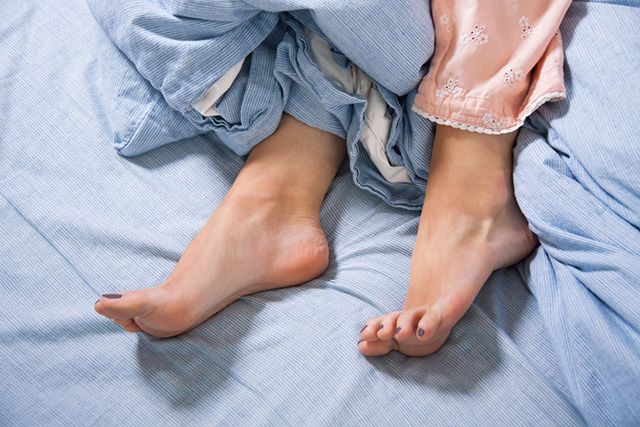
- Snoring and Sleep Apnea
The restricted airways of both snoring, and the more serious condition, sleep apnea, are a leading cause of a disrupted sleep for millions of people. Although over time some of this may be controlled through diet, exercise, surgery, and sleep products– it still may create problems as these remedies take time to work properly. Sleep apnea does require a diagnosis and doctor monitoring and care, but still often makes the sleeper feeling restless and tired as a result of the solutions that can help with the condition.
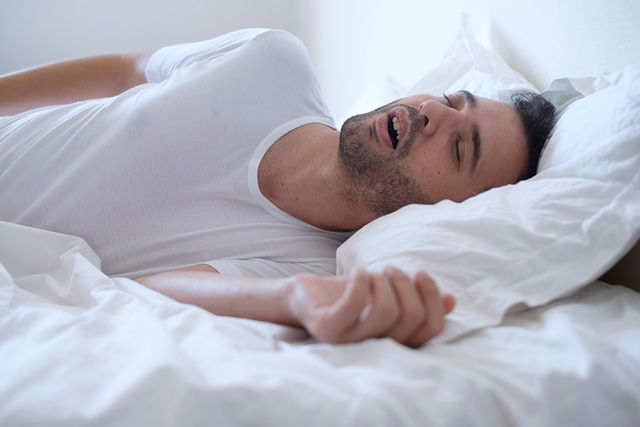
- Pregnancy
The ever-changing physical conditions of pregnancy, and the side effects it creates on the body, often result in disrupted nights and comfort. Getting the rest a mother and her growing child needs is crucial to both mental and physical health. Pregnancy pillow products often aid in body support and comfort, but any sleep aids should always be considered under doctors care only.

Sleep Aid Pill Options to Consider
If you feel that a sleep aid pill is a possible option, you should first understand the difference between the many that exist in the medical market. Speaking with your doctor after already being informed of your choices can help you determine what might be best for your situation, as well as help you better understand its use and possible side effects. Having knowledge in advance allows you to ask meaningful questions.
Prescribed
Sleep aids that are prescribed are often done so very carefully and under observations. These often have a tendency to create dependency issues, and other options usually have already failed before a prescription is written. They also may only be prescribed for short term use to better track the effects it may have on your overall sleep.
Over the Counter (OTC)
These options are readily available using a wide variety of different ingredients and are considered fairly safe to use. Some also include all natural ingredients, with many considered vegan options. However, they still should be used only as needed, and not depended on as they too can create addiction in some cases. You should always speak with your doctor before use, especially if you are taking any medication as some ingredients can interact poorly with other medications.
You may be interested in: Best Over the Counter Sleep Aids
Sleep Aid Ingredients and Possible Side Effects
Any medication has the possibility to create side effects in the consumer. Some may be fairly minor in nature, while others could create discomfort worse than being tired. The types of ingredients used drive these effects, and should always be considered prior to use.
• OTC
Over the counter options, despite being considered relatively safe to use, can have some serious side effects associated with them. Even naturally occurring ingredients can interact poorly with medication, or with your body’s ability to use it properly. The most common ingredients found in OTC options include:
Diphenhydramine
This is a sedating antihistamine used to create drowsiness to help you fall asleep. It is very drying and is often found in allergy medications. Because of this is can create the mouth and eye dryness, blurred vision, constipation, and urinary retention, as well as a ‘hangover feeling’ and grogginess through the following day. It also has a high risk for psychological dependency.

This is similar to diphenhydramine, and also has similar side effects. Reports from consumers often claim it is not as drying, and that waking the next morning is often easier. It also does not seem to have as high a risk for dependency.
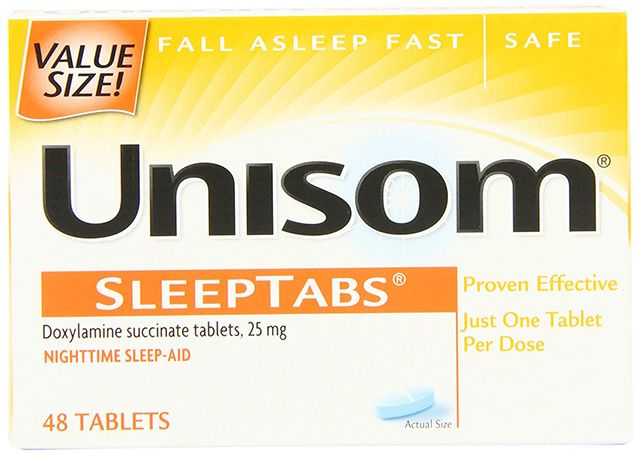
Melatonin
This is a hormone your body naturally produces to trigger the sleep-wake cycle. It is usually used as a synthetic source rather than natural source but is considered very effective in resetting your sleep cycle. But if your sleep cycle is not the problem it may not work well. It can cause restlessness, daytime grogginess, and headaches in some people.

Valerian
Valerian is a plant that produces a natural sleep aid. It is usually used in conjunction with other plants that support relaxation and can be found alongside melatonin in many instances as an effective ingredient. As a stand-alone it does not seem to have any side effects, but can interact with other medications.

• Prescription
Prescription ingredients come in a long list of various names using very specific types of drugs, but all are made to either help you fall asleep, stay asleep, or can do both. Almost all can lead to dependence and should be taken very carefully under doctors orders. They also have a long list of side effects, such as dizziness, grogginess, headaches, gastrointestinal problems, memory issues, and even allergic reactions. Always take these under doctor’s care, and research the various drugs and side effects before use.
What to Consider When Choosing a Sleep Aid Pill
Taking a sleep aid is a serious consideration and should be approached with caution, even when using an OTC. When your sleep schedule is out of rhythm a short term use of sleep aid can be an excellent choice to help reset your rest. This is good for travelers, shift workers, or anyone who finds themselves wakeful each evening, but drowsy each morning.
If dealing with pain that interrupts your sleep, then be sure to take care when mixing medications. Also do not be afraid to research your options, ask questions, and to approach the use of any sort of aid after first checking with your doctor. They are no magic cure but can bring the rest you need and desire.

The Best Sleep Aid Pill Choices to Consider
The follow sleep aid pills are some of the most popular OTC and prescription choices with consumers. They are considered effective for both falling asleep, as well as staying asleep.
1. Editor’s Choice: Advil PM Pain Reliever/Nighttime Sleep Aid
OVERVIEW
- Type: OTC
- Uses: pain relief, fast to sleep, stay asleep
- Bottle Amount: 80 pills/capsules
- Pain Aid: yes
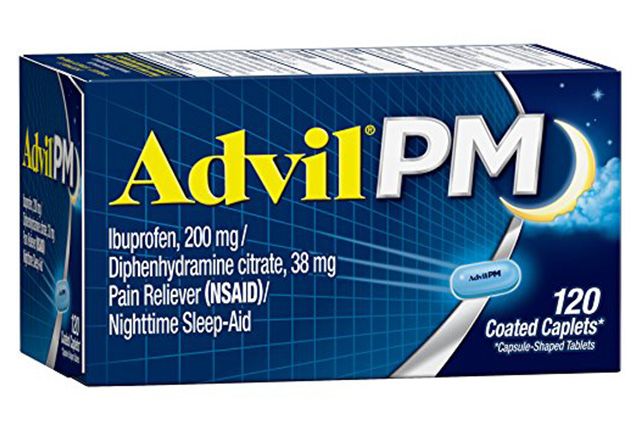
Advil PM is specially designed to address both sleeps, and pain issues for those whose sleep is disrupted by physical pain discomforts. The main ingredient is diphenhydramine, an antihistamine, which is combined with both ibuprofen and an NSAID to alleviate inflammation and pain.
These pills come in liquid gel forms as well as in a more traditional pill- both which are considered effective, safe, and non-habit forming when used correctly. The liquid gel pill is considered easier to swallow, and also may work more quickly, but not less effective than the original pill form. Side effects mostly surround grogginess the next morning, and it can create abdominal pain if not taken with food or milk.
Pros
- Helps you fall asleep quickly without a drowsy feeling
- Pain relief is long lasting
- Works well to replace prescription pain doses
Cons
- Needs food or drink to avoid bother the stomach
- More than one pill may make you drowsy in the morning
When pain is part of your sleep problem, an OTC such as Advil PM is a choice worth considering to help you sleep in rejuvenating comfort.
2. Runner Up: Ambien CR
OVERVIEW
- Type: prescription
- Uses: fall asleep, stay asleep
- Bottle Amount: prescription by pill
- Pain Aid: no
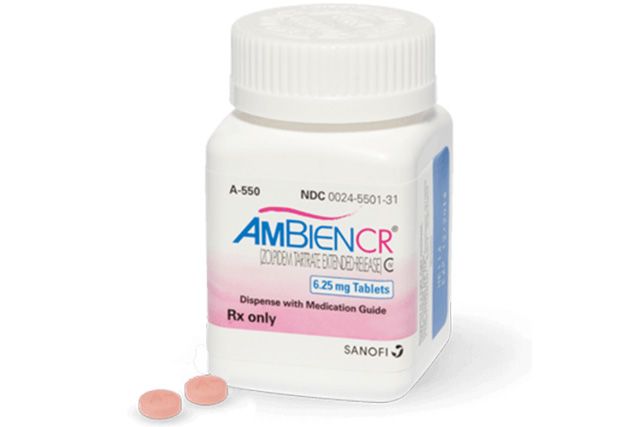
Ambien CR is an available only by prescription, and like Ambien, uses the drug Zolpidem to cause drowsiness. The difference between the two is that Ambien CR uses it in an extended release form to not only help you fall asleep but help you stay asleep as well. This is a powerfully effective choice and requires you to be able to get a full 7 to 8 hours of sleep before the effects wear off.
These pills are considered dependent forming, and also can have severe side effects in some people. Common side effects include a headache and grogginess the next day, with severe cases including sleepwalking, aggressive behavior, anxiety, and even allergic reactions that cause swelling of the tongue and throat.
Pros
- Fall asleep fast and stay asleep
- The common and popular prescription that works well for most people
- No wait time to determine if it works or not
Cons
- May feel groggy, and out of it the next day
- Has possible serious side effects
If you have not found relief in an OTC option, then discussing with your healthcare provider about using Ambien CR may be worth the office visit. Most people have an immediate result to determine if they work for them. The should be considered only for short term use, however.
You may be interested in: Prescription Sleep Aids
3. Unisom SleepTabs, Non-Habit Forming Sleep Aid
OVERVIEW
- Type: OTC
- Uses: Fall Asleep, nausea and stress
- Bottle Amount: 32 pills
- Pain Aid: no
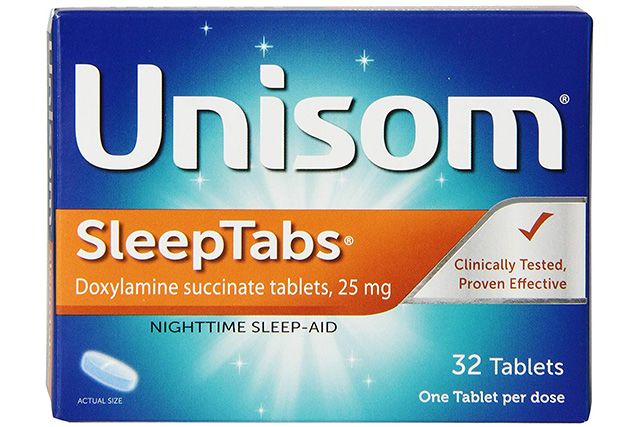
Unisom sleep aids are available in a pill (tab form), gel tablet, and melts as an OTC to meet the preferences of their consumers. It helps with falling asleep as well as easing anxiety and stress. Gentle on the stomach, it has relaxing properties as well, and and it is a product often suggested by doctors during pregnancies to help with sleep and nausea. Always check with your OB before use.
The main ingredient, doxylamine succinate encourages sleep and should be taken pretty much immediately before bed to avoid drowsiness. The ingredients work to calm a busy mind and body and should be taken with at least 7 to 8 hours of rest available or it could cause grogginess the next morning. Half doses can also be taken. Side effects include grogginess, dizziness, and dry mouth and eyes. More severe effects may include constipation and trouble urinating, as well as an elevated heartbeat.
Pros
- Half doses can be taken
- Helps calm the mind
- Safe for pregnancy under a doctors care
Cons
- Drowsiness may occur with less than 7 hours of sleep
- Complaints of both acting as a diuretic, as well as drying, have occurred
Stressed and anxious minds may find this a relaxing way to drift off to sleep. It also is considered safe for pregnancy, but only under doctors care. Side effects are fairly minimal- with common complains of dryness occurring due to the working of the antihistamine ingredient.
#4. Lunesta
OVERVIEW
- Type: Prescription
- Uses: Fall asleep, Stay Asleep
- Bottle Amount: prescribed by pill
- Pain Aid: no

Lunesta uses the drug Eszopiclone, a sedative-hypnotic, to help create a calming effect on your brain. It is a sleep aid that is available only by prescription and is designed to help you fall asleep faster, and help you stay asleep. Like more prescriptions, it requires that you get at least 7 to 8 hours of sleep to avoid feeling overly tired the next day. It also can be prescribed in various doses, with a 1 mg dose suggested for active adults who need to be alert and aware the following day- although up to 3 mg is regularly prescribed.
These are a dependant forming drug and can have withdrawal symptoms even when not abused. Because of this, it is designed to be used short term, rather than over the course of any long periods of time. Dry mouth and dizziness are the most common side effects, but severe symptoms can occur- such as moodiness, aggressiveness, and depression. Allergic reactions may include dizziness, swelling, and a rash.
Pros
- Works quickly and efficiently
- Can be prescribed in various doses to treat various sleep conditions
- Helps you to sleep through the whole night
Cons
- Has some serious side effects for some people
- Can make you feel groggy the next day even when used correctly
Lunesta is a popular prescription strength option to help with short term sleep issues and to help treat sleep disorders. Like most prescriptions, it should work begin to work immediately.
#5. LUNA Naturally Sourced Sleeping Pills for Adults
OVERVIEW
- Type: OTC
- Uses: Fall asleep, Stay Asleep
- Bottle Amount: 60 capsules
- Pain Aid: no
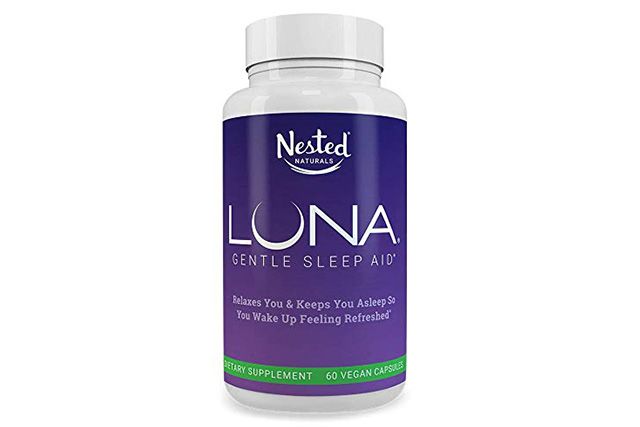
Luna is a popular sleep aid that uses all natural products to help you fall asleep. The main ingredient is melatonin which is mixed with valerian, l-theanine, and other ingredients found in natures, such as chamomile and lemon balm- to help you relax and rest soundly. GABA is also included as a natural neurotransmitter that increases relaxation.
This aid is marketed as a supplement to help reset sleep patterns, influence a deeper, more restful sleep. It also comes as a vegetable capsule pill, making it vegan and gluten-free for health and lifestyle choices. Side effects may include headaches, dizziness, nausea and stomach discomfort- especially if taken on an empty stomach. You also may feel groggy the next day.
Pros
- Should not aggravate GERD
- Helps with a sound sleep
- Excellent customer service for questions
Cons
- Dosage can be adjusted for stomach discomfort
- Melatonin may cause restlessness in some people
This all natural pill is designed to allow relaxation and a full night’s sleep. Melatonin is not for everyone, so if you suspect sensitivities (usually marked by restless sleep and grogginess) it may not be the best choice, but otherwise is considered vegan and health friendly.
You may want to read: How to Fall Asleep on VyVanse
Conclusion
Although this article only touches on the many options you may consider for a better sleep through a sleep aid pill- these are considered some of the most popular and effective with consumers. The ingredient list should always be considered prior to taking, and a quick consult with your doctor is always recommended with any new medication, even OTC. Prescription choices should be monitored for usefulness, as well as the dependency that can occur as well.
Despite the warnings, sleeps aids are considered highly effective, especially for solving insomnia issues and resetting sleep cycles. When used correctly and with care, side effects are minimal, as are dependency issues.
